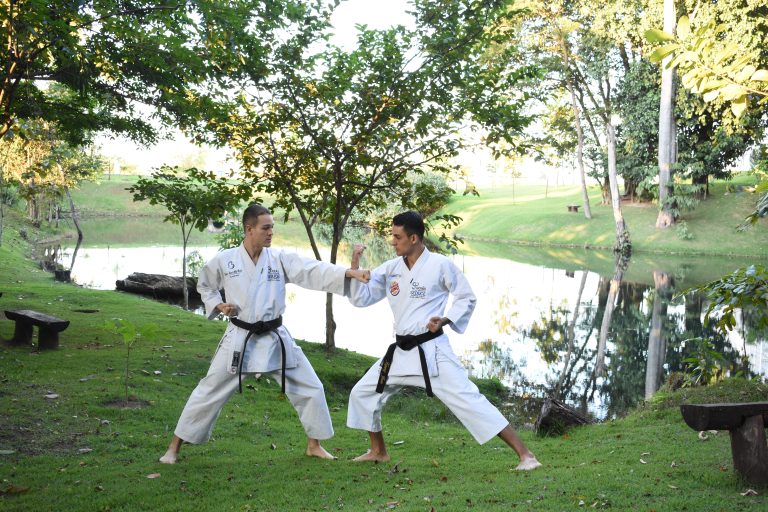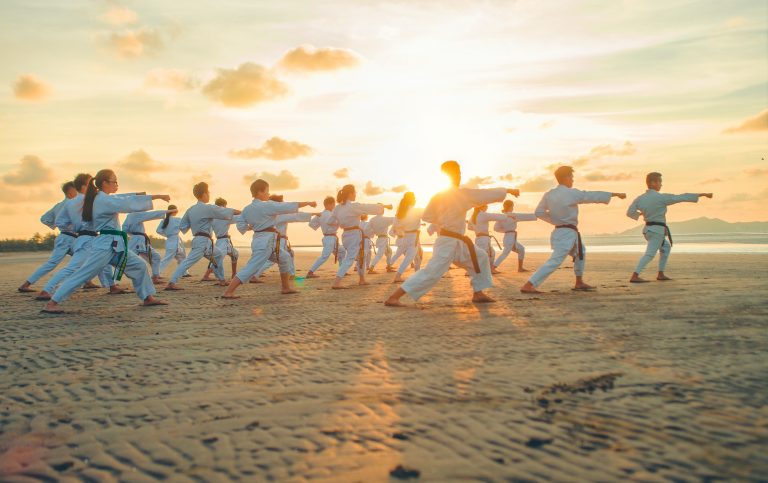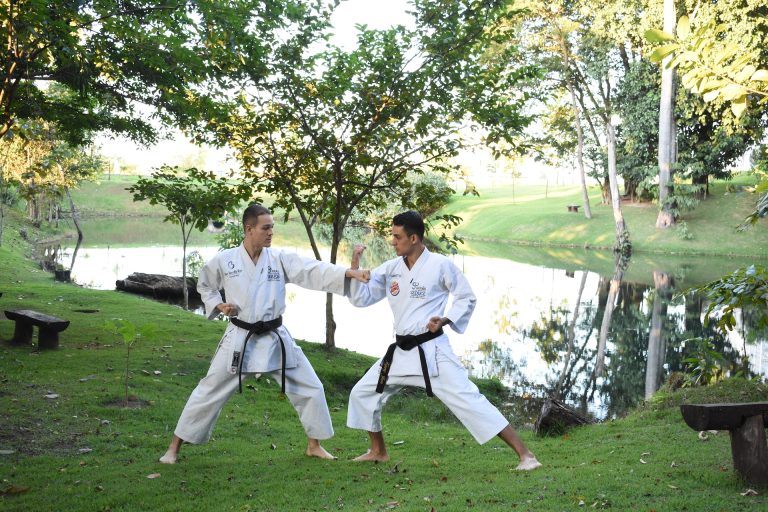Can You Learn Karate at Home by Yourself?
Karate is a popular martial art that originated in Okinawa, Japan, in the early 20th century. It emphasizes striking techniques using punches, kicks, and knee strikes, as well as defensive maneuvers like blocks and evasions. While karate is traditionally taught in dojos or training centers, many people wonder if it’s possible to learn karate at home by themselves. In this article, we’ll examine whether or not it is possible to learn karate without a teacher and offer some tips for those who want to try.
Is it Possible to Learn Karate at Home by Yourself?
The short answer to this question is no, it is not possible to learn karate at home by yourself completely. Karate, like any martial art, requires physical feedback from an experienced instructor to learn proper technique and form. Moreover, there are safety concerns associated with learning a martial art without proper supervision. Without someone to correct your form or warn you of movements that could cause injury, you could accidentally hurt yourself or others while practicing.
That being said, there are some elements of karate that you can learn and practice at home. For example, you can practice stretching, which can improve your flexibility and prepare your body for more advanced techniques. You can also practice basic moves, such as punches, kicks, and blocks, to develop your muscle memory and coordination. However, it’s essential to keep in mind that without proper feedback from an instructor, you may be practicing incorrectly, which can hinder your progress in the long run.
Challenges of Learning Karate at Home by Yourself
Besides the absence of feedback from an instructor, there are several other challenges that people face when learning karate at home by themselves. These include:
The lack of motivation and structure
Since there are no set schedules or routines to follow at home, it can be difficult to stay motivated and disciplined when practicing karate. Without a teacher to push you and hold you accountable, it’s easy to get distracted or skip training sessions altogether.
The absence of sparring partners
Karate sparring involves fighting another person, and it is an essential component of learning the martial art. When training by yourself, you miss out on the opportunity to spar with others, which can slow your progress and limit your ability to apply your skills in real-life situations.
The risk of injury
Practicing karate at home without proper supervision increases the risk of injury. Without an instructor to correct your form and warn you of potentially dangerous movements, you could end up hurting yourself and others.
How to Supplement Your Karate Training at Home
While you can’t fully learn karate at home by yourself, you can use resources like videos and books to supplement your training. Here are some tips on how to make the most of your home training:
Practice basic moves
As mentioned earlier, practicing basic moves like punches, kicks, and blocks can help develop your muscle memory and prepare you for more advanced techniques. You can use resources like videos or books to learn proper form and technique.
Stretch regularly
Stretching is an essential component of karate, and it can help improve your flexibility and prevent injury. You can find stretching routines online or consult a physical therapist to create a program that suits your needs.
Use a heavy bag or target pad
Using a heavy bag or target pad can help you practice strikes and kicks with proper form. These tools allow you to practice power and accuracy, which are crucial for karate training.
Join an online training program
In recent years, online training programs have become an increasingly popular option for people who want to learn martial arts at home. These programs typically offer video lessons and feedback from instructors, and they can help supplement your karate training.
Can You Learn Karate at Home by Yourself?
Are you interested in learning karate but wondering if it’s possible to do so from the comfort of your own home? With the rise of online resources and tutorials, it’s no surprise that many people are asking whether they can learn karate at home by themselves. In this post, we’ll answer some of the most common questions about learning karate at home and provide you with the information you need to decide if it’s right for you.
1. Is it Possible to Learn Karate at Home Without a Teacher?
While it is technically possible to learn karate at home without a teacher, it’s not recommended. Karate is an intricate art form that requires hands-on instruction and correction from a qualified instructor. Without a teacher, you may develop bad habits or improper techniques that could hinder your progress or cause injury.
2. Is it Safe to Learn Karate at Home by Yourself?
In general, karate is a safe activity as long as it’s practiced correctly and under proper supervision. However, learning karate at home by yourself carries a higher risk of injury, as you won’t have an instructor to correct your form or ensure your safety. If you do choose to learn karate at home, make sure to take extra precautions to avoid injury, such as practicing on a padded surface and gradually increasing the intensity of your workouts.
3. Can You Learn Karate at Home Without a Partner?
While it’s certainly helpful to have a partner or sparring buddy when learning karate, it’s not strictly necessary. Many karate techniques and movements can be practiced alone, and there are plenty of resources available online that can help you learn solo drills and exercises. That being said, training with a partner can help you develop better timing, reflexes, and distance control, so it’s something to consider if you have the option.
4. What Resources Are Available for Learning Karate at Home?
If you’re interested in learning karate at home, there are plenty of resources available to help you get started. YouTube is a great place to find instructional videos and tutorials, and there are also many online courses and programs that you can enroll in. However, it’s important to be discerning when it comes to online resources; make sure to choose reputable sources and avoid tutorials that seem too advanced or complex for your skill level.
5. How Can You Stay Motivated When Learning Karate at Home?
One of the biggest challenges of learning karate at home is staying motivated and on track. Without the accountability of a teacher or classmates, it’s easy to get discouraged or lose momentum. To avoid this, set specific goals for yourself and track your progress regularly. Consider creating a schedule or training plan to help you stay organized and on track. Additionally, try to connect with other karate enthusiasts online or seek out local clubs or classes where you can practice with others and receive feedback from a qualified instructor.
Can You Learn Karate at Home by Yourself? A Comprehensive How-To Guide
Karate is a martial art that requires physical training, discipline, and focus. With the rise in online courses and resources, many people wonder if they can learn karate at home by themselves. The answer is yes; you can learn karate on your own, but it requires dedication, consistency, and a willingness to learn. In this how-to guide, we’ll explore everything you need to know to start learning karate at home.
Step 1: Choose a Karate Style
Karate has several styles, each with its own techniques, principles, and movements. It can be overwhelming to choose a style for a beginner, but you can start by researching and comparing the common styles. The most popular are Shotokan, Goju-ryu, Wado-ryu, and Shito-ryu. Each style has its unique techniques, so it’s essential to choose one that resonates with you.
Step 2: Find a Good Karate Resource
Learning karate at home requires proper instruction, so you need to find a credible karate resource to guide you. You can start by researching online karate courses, books, and videos. Make sure to choose resources that cover the fundamentals, such as stances, kicks, punches, and blocks. Also, look for resources that offer step-by-step instructions and clear demonstrations.
Step 3: Practice the Basic Stances
Stances are the foundation of karate, so it’s essential to learn them correctly. The basic stances include front stance, back stance, horse stance, and cat stance. Each posture has its purpose and application, so it’s essential to practice them regularly.
Step 4: Master Basic Kicks
Karate involves a wide range of kicking techniques, from front kicks to roundhouse kicks. Start with the basic kicks, such as front kick, side kick, and roundhouse kick. Make sure to practice them with proper form, balance, and power.
Step 5: Learn Basic Punches
Punching techniques are equally important in karate, as they form the basis of many offensive moves. The basic punches include straight punch, uppercut, and hook punch. Practice them regularly to improve your technique, form, and power.
Step 6: Practice Kata
Kata is a series of pre-arranged movements that simulate combat scenarios. It’s an essential part of learning karate, as it helps to develop coordination, timing, and fluidity of movements. Start with the basic kata, such as Heian Shodan or Taikyoku Shodan.
Step 7: Train Regularly and Consistently
Learning karate at home requires discipline, consistency, and a willingness to learn. Set a regular practice schedule that fits your lifestyle, and stick to it. Remember that progress takes time, so be patient and persistent in your training.
Step 8: Find a Training Partner
Karate is a martial art that involves sparring and partner training. Finding a training partner can help you improve your techniques, timing, and distance. You can ask a family member, friend, or join a local karate club to find a partner.
Step 9: Get Feedback and Improvement
Getting feedback from a qualified karate instructor or training partner can help you identify weaknesses in your technique and areas of improvement. Make use of feedback to adjust your techniques and improve your performance.
Conclusion
In conclusion, learning karate at home by yourself is possible, but it requires dedication, consistency, and a willingness to learn. Follow the steps outlined in this guide, and you’ll be on your way to becoming a skilled karate practitioner. Remember to always seek proper instruction and guidance, practice regularly and consistently, and stay committed to your training. Good luck on your karate journey!
Inhaltsverzeichnis





